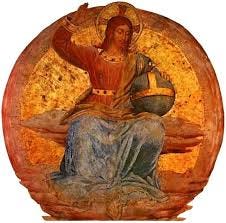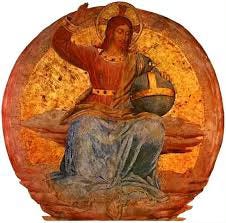‘In the beginning was the Word’, as the opening of St. John's Gospel states. ‘All things were made by him; and without him was not any thing made that was made. In him was life; and that life was the light of men.’
This Word, this Light, this Logos, is alive and active in our world today. It shines amidst the darkness, both in the vicissitudes of our daily lives and in the general mess of things at large. The darkness ‘comprehendeth it not’, but it cannot and will not, by the same token, ever be able to overcome it.
This Logos is worth investing in then. We can ‘hang our hats on it’ and build our lives around it. In doing so, we align ourselves with the deepest impulses of the cosmos. We escape the illusions of Plato’s Cave - the deceptions of modernity - and turn to face the Sun, the source of life and goodness.
In my previous post, we looked at how Tolkien’s angels - the Ainur - by the gift and grace of God sing the universe into existence. On Candlemas Day - February 2nd - we will revisit The Magician’s Nephew and see how Aslan, in an analogous manner, calls Narnia into life through the power and potency of song.
That music, these songs, this font and wellspring of creation, continues on - it is the gift that keeps on giving - and can be heard and encountered in the poems, tales and legends we have told ourselves for millennia. As long as the poet, writer or tale-teller is facing the right way - so long as he or she has rejected the Cave and is facing the Sun - then their story or song will have jewels within it that can reanimate and reinvigorate our lives, both on the micro and the macro levels.
I intend to hone in on this restorative element throughout the coming year - to view these gems not through a literary, cultural or even theological lens, but rather from the point of view of a person who has lost their way in life or fallen into despair or has just got stuck in a rut. How might that particular story or poem help bring that person back to life’s fertile places again, guiding him or her out of the darkness and into the light?
What you can expect from me are twice-monthly essays in the style of the recent ‘motivational texts’ series here. The focus will be on the classics of the Western Canon plus nineteenth and twentieth-century religiously minded writers - Arthur Machen, George MacDonald, W.B. Yeats, T.S. Eliot, C.S. Lewis, Tolkien, Charles Williams, Kathleen Raine, Elizabeth Jennings, and more. I don’t want to stray too far from the books I know and trust, but I will attempt to broaden and deepen my range as and when I can.
I’ll be back, as I say, early next month with a reflection on beginnings and endings in Narnia and how this applies/maps onto the cycles of our own lives. Thank you for reading and all the very best to you all for 2025,
John.




